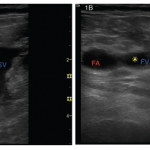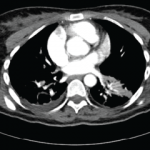 ACR CONVERGENCE 2020—On May 31, 2018, the U.S. Food & Drug Administration (FDA) approved the oral, selective Janus kinase (JAK) 1/JAK 2 inhibitor, baricitinib, to treat adults with moderate to severe active rheumatoid arthritis for whom one or more tumor necrosis factor antagonists proved inadequate.1
ACR CONVERGENCE 2020—On May 31, 2018, the U.S. Food & Drug Administration (FDA) approved the oral, selective Janus kinase (JAK) 1/JAK 2 inhibitor, baricitinib, to treat adults with moderate to severe active rheumatoid arthritis for whom one or more tumor necrosis factor antagonists proved inadequate.1
In November, an updated safety analysis was presented on the long-term use of baricitinib during ACR Convergence 2020. The study, from Winthrop et al., assessed safety using data from nine randomized clinical trials (phase 3: n=5; phase 2: n=3; phase 1b: n=1) and one long-term extension study.2
Data from all patients who received at least one dose of baricitinib through Sept. 1, 2019, were used to calculate an incidence rate per 100 patient-years of exposure, which was called the All-bari-RA analysis set. Incidence rates for deep vein thrombosis, pulmonary embolism, and deep vein thrombosis and/or pulmonary embolism were also calculated for patients in the All-bari-RA set who received 2 or 4 mg of baricitinib.
Major adverse cardiovascular events were adjudicated in the long-term extension study and the five phase 3 studies. The serious infections incidence rates were evaluated through week 24 in the phase 2 and 3 studies and the All-bari-RA analysis set. This analysis was stratified by age group: younger than 65 years and 65 years and older.
Within the All-bari-RA analysis set, events of interest were assessed over time in 48-month intervals. To account for the aging of patients, incidence rates for death and malignancy, excluding non-melanoma skin cancer, were standardized to the World Health Organization world population 2000–2025 within each time interval.
Results
Data were analyzed for baricitinib-treated patients (n=3,770) representing 13,148 patient-years of exposure, with a median of 4.2 years of exposure to a maximum of 8.4 years of exposure per patient. The overall incidence ratios per 100 patient-years of exposure were 25.8 for treatment emergent adverse events and 7.2 for serious adverse events, including death.
In the All-bari-RA analysis set, the incidence rates of serious infections for patients younger than 65 years old was 2.1 (95% confidence interval [CI], 1.9–2.4) and for those 65 years and older was 4.8 (95% CI, 4.0–5.7). For major adverse cardiovascular events, deep vein thrombosis, pulmonary embolism, deep vein thrombosis and/or pulmonary embolism, and non-melanoma skin cancer, the incidence rates remained generally stable. After adjusting for age, no increases in the rates of death or malignancies, excluding non-melanoma skin cancer, were found. The incidence rates across the safety profiles were consistent with previous analyses.



